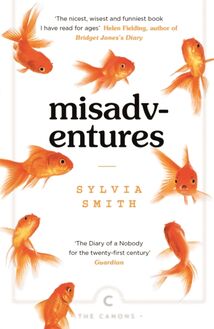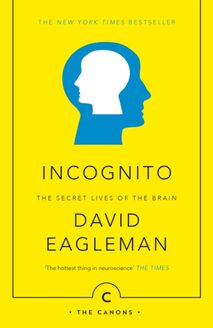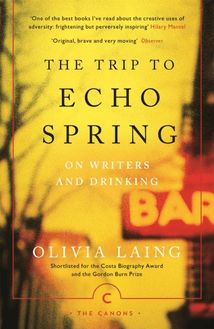-
 Univers
Univers
-
 Ebooks
Ebooks
-
 Livres audio
Livres audio
-
 Presse
Presse
-
 Podcasts
Podcasts
-
 BD
BD
-
 Documents
Documents
-
- Cours
- Révisions
- Ressources pédagogiques
- Sciences de l’éducation
- Manuels scolaires
- Langues
- Travaux de classe
- Annales de BEP
- Etudes supérieures
- Maternelle et primaire
- Fiches de lecture
- Orientation scolaire
- Méthodologie
- Corrigés de devoir
- Annales d’examens et concours
- Annales du bac
- Annales du brevet
- Rapports de stage
La lecture à portée de main
Vous pourrez modifier la taille du texte de cet ouvrage
Découvre YouScribe en t'inscrivant gratuitement
Je m'inscrisDécouvre YouScribe en t'inscrivant gratuitement
Je m'inscrisEn savoir plus
Vous pourrez modifier la taille du texte de cet ouvrage
En savoir plus

Description
Informations
| Publié par | Canongate Books |
| Date de parution | 02 juin 2022 |
| Nombre de lectures | 0 |
| EAN13 | 9781838857158 |
| Langue | English |
| Poids de l'ouvrage | 1 Mo |
Informations légales : prix de location à la page 0,0400€. Cette information est donnée uniquement à titre indicatif conformément à la législation en vigueur.
Extrait
Dame Margaret Drabble was born in Sheffield in 1939 and was educated at Newnham College, Cambridge. She is the author of twenty highly acclaimed novels. She has also written biographies, screenplays and was the editor of the Oxford Companion to English Literature . She was appointed CBE in 1980 , and made DBE in the 2008 Honours list. She was also awarded the 2011 Golden PEN Award for a Lifetime s Distinguished Service to Literature. She is married to the biographer Michael Holroyd.
Also by Margaret Drabble
FICTION
A Summer Bird-Cage
The Garrick Year
The Millstone
The Waterfall
The Needle s Eye
London Consequences (group novel)
The Realms of Gold
The Ice Age
The Middle Ground
The Radiant Way
A Natural Curiosity
The Gates of Ivory
The Witch of Exmoor
The Peppered Moth
The Seven Sisters
The Red Queen
The Sea Lady
The Pure Gold Baby
The Dark Flood Rises
SHORT STORIES
A Day in the Life of a Smiling Woman: The Collected Stories
NON-FICTION
Wordsworth (Literature in Perspective series)
Arnold Bennett: A Biography
For Queen and Country
A Writer s Britain
The Oxford Companion to English Literature (editor)
Angus Wilson: A Biography
The Pattern in the Carpet
The Canons edition published in Great Britain in 2022 by Canongate Books
canongate.co.uk
This digital edition first published in 2022 by Canongate Books
First published in hardback in Great Britain in 1967 by
Weidenfeld & Nicolson
Published in paperback in 2011 by Penguin Classics
Copyright Margaret Drabble, 1967
The right of Margaret Drabble to be identified as the author of this work has been asserted by her in accordance with the Copyright, Designs and Patents Act 1988
British Library Cataloguing-in-Publication Data
A catalogue record for this book is available on request from the British Library
ISBN 978 1 83885 714 1
eISBN 978 1 83885 715 8
For Judith Landry
CONTENTS
1
2
3
4
5
6
7
8
9
1
Clara never failed to be astonished by the extraordinary felicity of her own name. She found it hard to trust herself to the mercy of fate, which had managed over the years to convert her greatest shame into one of her greatest assets, and even after years of comparative security she was still prepared for, still half expecting the old gibes to be revived. But whenever she was introduced, nothing greeted the amazing, all-revealing Clara but cries of, How delightful, how charming, how unusual, how fortunate, and she could foresee a time when friends would name their babies after her and refer back to her with pride as the original from which inspiration had first been drawn. Finally her confidence grew to such an extent that she was able to explain that she had been christened not in the vanguard but in the extreme rearguard of fashion, after a Wesleyan great aunt, and that her mother had formed the notion not as an unusual and charming conceit, but as a preconceived penance for her daughter, whose only offences at that tender age were her existence and her sex. For Mrs Maugham did not like the name any more than Clara and her school friends did, and she chose it through a characteristic mixture of duty and malice. When Clara explained this to people, she found that they merely laughed, and the thought of people laughing, however indirectly, at her mother s intentions, gave her a deep and secret pleasure.
The reversal of fortune was in fact so complete that Clara sometimes found herself wondering whether she had not gone so far as deliberately to seek a world in which her name could be a credit and not a shame. Her social progress had certainly taken her far enough from her starting point. On the other hand, time had converted liabilities other than her name into assets, and things surely more integral to the nature of her progress. Her intelligence, which was considerable, must for instance have played some more significant and guiding role: the name question was merely a piece of luck. Her intelligence, like her name, had been as a child a source of great trouble to her, for it too had singled her out, when her one desire had been to be inconspicuous. It made her an object of ridicule and contempt from the earliest age, and some of her most frightful memories were of her mother, grim-faced, ill concealing her resentment, as she flipped through those predictably shining school reports. She wished at such moments that she could fail examinations as other children did, and her most cherished subject was geometry, in which her marks were sometimes quite comfortably low. And yet at the same time she doubly resented her mother s resentment, for her mother herself was no fool, she had never herself possessed the lovely blessing of stupidity: she had merely crushed and deformed and dissembled what gifts she had once had, in deference to what? To a way of life perhaps, to a town, to a suburb in a town in the North of England.
But Clara, try as she might, found it hard to dissemble. And always, at the back of her mind, there was some faint hope that some day it might pay off, that some day she might find herself somewhere where she might win. So she cultivated, stubbornly, discreetly, her inclinations, and in the end it was this same intelligence which in her home town was so sourly disowned, so grudgingly deprecated, that got her out of it and transported her incredibly, mercifully, to London. When she received her first term s cheque for her State Scholarship Allowance, she stared at it for some time as she contemplated the fact, the printed fact before her, the final vindication of her lonely belief that there was more than one way of life in England. And see, there was, for somebody somewhere had thought that intelligence was worth paying for. Even her mother could not annihilate ninety pounds by mere disapproval: the cash payment spoke to Clara s industrial heart decisively. Money was there, and in her hand, and moreover money would continue to arrive at settled intervals, being the gift of a settled politic faith, and not a mere whim of authority. At times she felt a certain shame about taking the money, as though she were being paid for displaying or exercising some horrific deformity, like the dwarf in the circus, like the fat lady, like the woman with the hairy chest. And she never learned to take a simple pleasure in her own abilities; they remained for her a means, and not an end, a bargaining power rather than a blessing. Yet nevertheless, as the years rolled by, she grew more bold about the power, for if intelligence were a deformity, then it was certainly not as rare or as disfiguring a one as she had expected, and there were plenty of people who found it acceptable. As with the name, it was simply a question of finding the people to take it; all she had to do was seek a place, a place other than Northam, where her eccentricities might go unmarked, where indeed, more hopefully, they might be greeted with delight.
And as far as people went, she had not done too badly. She had to make do with some unsatisfactory substitutes at times, for it took her some time to learn her way about, and she was in her third year at University before she met the Denhams: but then she had to acknowledge that if she had met them earlier, at the age of eighteen, straight out of Grammar School, raw, uninitiated, desirous, she might not have been capable of seeing them for what they were, for at that age all people who were not from Northam seemed at first sight equally brilliant, surrounded as they were by a confusing blur of bright indistinct charm. Moreover, even if at that age she had recognised their distinctions, her recognition would have been of no use to her: she would have admired, silently, in servile envy. Whereas when she did finally discover them, at the age of twenty-two, she had at least learned words and signs and gestures; she knew at least the outlines of their world. Sometimes she wondered what would have happened if she had missed them, and whether a conjunction so fateful and fruitful could have been, by some accidental obtuseness on her part, avoided: she did not like to think so, she liked to think that inevitability had had her in its grip, but at the same time she uneasily knew that it had, in some ways, been a near thing.
For the truth was that her first sight of Clelia had not impressed her. In the light of future impressions, she found it hard to credit this disturbing historic recollection: it seemed to convict her of such gross insensitivity. Nor did she like the implications of accident that this initial blindness carried; she felt, looking back, like a lover who had met and passed by, indifferently, without recognition, the one love of his life, distracted from his destiny by the need for a drink, or a fixed intention to have an early night. Though it was not as though she had missed her for long; the time lag, between meeting and recognition, had been infinitesimal. Infinitesimal, but sinister. Clara would have found it more satisfactory if, upon vision, upon the instant of meeting, a sudden lightning had descended: if she could have said then, this is the kind of thing I have been looking for, and if this is not it, then it is nowhere else.
But in mercy to herself, to her own perceptions, she had to acknowledge that the circumstances of their meeting had been colourful and confusing enough to excuse a good deal of distraction. For she had first seen Clelia in the dressing room of a theatre, and she had never been in such a room before. She was so amazed by the novelty of finding herself there at all that it took her some time to distinguish its various occupants, though she was solicitously introduced to each in turn by her escort, and introduced, she later assumed, to Clelia too, though she could not remember even a smile or a handshake; that first contact dropped from her memory as though it had never happened and she would look for it sometimes, and sometimes s
-
 Univers
Univers
-
 Ebooks
Ebooks
-
 Livres audio
Livres audio
-
 Presse
Presse
-
 Podcasts
Podcasts
-
 BD
BD
-
 Documents
Documents
-
Jeunesse
-
Littérature
-
Ressources professionnelles
-
Santé et bien-être
-
Savoirs
-
Education
-
Loisirs et hobbies
-
Art, musique et cinéma
-
Actualité et débat de société
-
Jeunesse
-
Littérature
-
Ressources professionnelles
-
Santé et bien-être
-
Savoirs
-
Education
-
Loisirs et hobbies
-
Art, musique et cinéma
-
Actualité et débat de société
-
Actualités
-
Lifestyle
-
Presse jeunesse
-
Presse professionnelle
-
Pratique
-
Presse sportive
-
Presse internationale
-
Culture & Médias
-
Action et Aventures
-
Science-fiction et Fantasy
-
Société
-
Jeunesse
-
Littérature
-
Ressources professionnelles
-
Santé et bien-être
-
Savoirs
-
Education
-
Loisirs et hobbies
-
Art, musique et cinéma
-
Actualité et débat de société
- Cours
- Révisions
- Ressources pédagogiques
- Sciences de l’éducation
- Manuels scolaires
- Langues
- Travaux de classe
- Annales de BEP
- Etudes supérieures
- Maternelle et primaire
- Fiches de lecture
- Orientation scolaire
- Méthodologie
- Corrigés de devoir
- Annales d’examens et concours
- Annales du bac
- Annales du brevet
- Rapports de stage




















